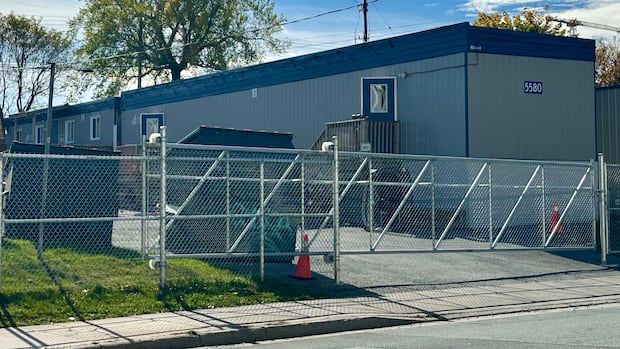Thousands of new housing units built, tens of thousands more on the horizon, and targets predicted to be smashed ahead of schedule.That’s the gist of a recent news release from Nova Scotia’s Progressive Conservative government to highlight the work it’s done since 2023 on a five-year housing plan.Certainly, the creation of more housing in a time of housing scarcity is not to be sniffed at, but it’s become apparent that giving people a roof overhead is only one part of the solution. Left out of the government’s report card of its own work are the more complex challenges that come with addressing homelessness. Mental illness, addictions and overall poor health are disproportionately common for people who are chronically unhoused. Not to mention frequent run-ins with the criminal justice system. These issues remain unwieldy in Nova Scotia, and the front-line workers tasked with managing them are feeling the strain, calling into question whether the province’s response to homelessness is really hitting the target.Tents in Lower Flinn Park in Halifax, pictured on Aug. 15, 2025. The park is one of the city’s designated tent encampments for people experiencing homelessness. (Taryn Grant/CBC)Shelters and supportive housing are meant to be the first steps in the transition from homeless to housed, and lately they’ve been the subjects of serious complaints of rampant substance abuse, violence and criminality.Neighbours, municipal officials and even members of the province’s own Justice Department have raised the alarm that public safety is under threat.In the case of one supportive housing site on Halifax’s Cogswell Street, concerns over drug trafficking nearly escalated to the Supreme Court of Nova Scotia. Provincial officials have said those problems were solved by switching service providers, but clinical psychologist Julian Somers has doubts.“If the same model of service is now under new management, I would expect very little to change substantively,” he said in a recent interview.Somers, a professor of health sciences at Simon Fraser University in Vancouver, has been studying addiction, mental illness and homelessness since the 1980s.He’s in favour of supportive housing — that is, alleviating homelessness by providing accommodations in conjunction with social support and health care. The idea is to bring people stability and resources to recover from mental illness and/or addictions. Julian Somers, a health sciences professor at Simon Fraser University, says scattered supportive housing is a more effective model than congregate supportive housing. The latter is the model used at some problematic sites in the Halifax area. (CBC)But Somers said supportive housing is not effective when units are clustered together in one location.“People don’t thrive in those settings; they become targets for predation because all the people who are dealing drugs know exactly where they are,” Somers said.“Basically, the culture of the street becomes the culture of the building.”That seems to be precisely what happened on Cogswell Street, which was the subject of two investigations by the Nova Scotia Department of Justice in 2023 and 2024.“I am extremely concerned with this property and the service provision,” a senior justice official wrote in an internal government email in late 2024. The email was released to CBC News through a freedom of information request.Charcy Marchand, director of public safety and policing, said investigators found the site to be a haven for drug trafficking after two extended surveillance operations.She emailed the Department of Opportunities and Social Development to put the site on notice. If things didn’t change, Marchand said she’d consider applying to the Supreme Court of Nova Scotia for a community safety order.Marchand said the court order could force the people living at the Cogswell Street site to leave, and force the operation to close for as long as three months.The site was not shut down, but the warning precipitated the end of a partnership between the province and the non-profit group Out of the Cold, which was running the shelter.Opportunities and Social Development Minister Scott Armstrong says the split with non-profit Out of the Cold was the solution for problems at a supportive housing site on Cogswell Street in Halifax. (Pat Callaghan/CBC)Opportunities and Social Development Minister Scott Armstrong told reporters recently he was confident switching service providers had eradicated the site’s problems. He said the case was “a one-off or an outlier,” with operations at other supportive housing sites being “very effective.”Maybe the change in service providers helped. It probably didn’t hurt that the province also recently paid for a tall chain-link fence and gate to be built around the site’s perimeter.But that site isn’t the only one where people have reported problems. Dartmouth councillor Tony Mancini said at a recent meeting of the Halifax Board of Police Commissioners that supportive housing sites on his side of the bridge are also magnets for criminality.There’s “good work” happening and people are getting the help they need, he told CBC News in an interview after the meeting. But “visitors” come and cause problems.If we look at the homelessness response by the government’s own preferred metric — units created — it has had success. There were 400 supportive housing units a few years ago, and the province has now surpassed 1,100 units and it is still adding. It expects to have close to 1,600 supportive housing units by 2028. But Somers said the model that’s used matters greatly. He prefers supportive housing units that are independent from each other, scattered throughout a community.His research has found that people in scattered supportive housing had fewer criminal convictions and medical emergencies in their first year, compared both to people who remained homeless and people who lived in congregate supportive housing.Jaime Smith, executive lead of homelessness and supportive housing with the Department of Opportunities and Social Development. (CBC)Jaime Smith, the executive lead of homelessness and supportive housing with the Department of Opportunities and Social Development, said there’s a need for both models — congregate and scattered — and indeed Nova Scotia uses both.“With any congregate setting, there are inevitably challenges that arise,” she said in a recent interview.She said the department is working with local police and the non-profits that provide housing support to “mitigate the challenges.”Smith noted that some of the province’s congregate supportive housing sites, including the one on Cogswell Street, were never meant to be permanent solutions. She said the department is “currently looking at the next phases of that work.”Whatever those next phases look like, it will undoubtedly continue to ask a lot of the people working on the front lines. Jeff Karabanow, a professor of social work at Dalhousie University, said the eruption of homelessness in Nova Scotia over the past several years is burning workers out. Jeff Karabanow, a Dalhousie University professor of social work who studies homelessness, says people working to alleviate homelessness are burning out. (Galen McRae/CBC)Karabanow was a founder of Out of the Cold, the non-profit that was dropped by the province following allegations of drug trafficking under its watch. He stepped away from the organization shortly before it started operating the Cogswell Street shelter.He said non-profit organizations that respond to homelessness are stretched thin.“It’s extremely overwhelming for folks that are on the ground working in this area,” he said in a recent interview.Karabanow gave the province credit for “moving in the right direction” by adding more shelter beds and housing units. But he said now is a critical time to review its approach.“It’s not a quick fix. It’s not just a shelter space any longer,” he said. “There’s a lot of deeper interventions. So I think we need to push the province a little bit in understanding that. Short-term models really don’t work very well.”Nevertheless, he remains hopeful.“We still have the opportunity to deal with homelessness out here in a way that can be effective and efficient.”MORE TOP STORIES
Solving homelessness takes more than just roofs over heads











